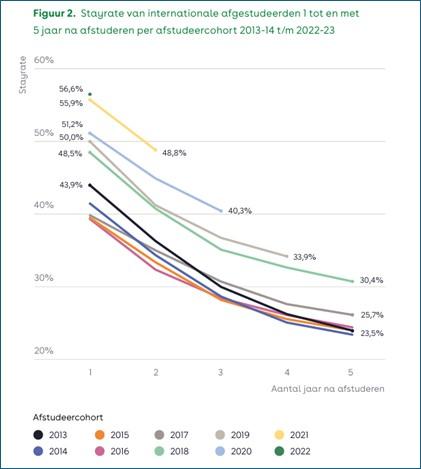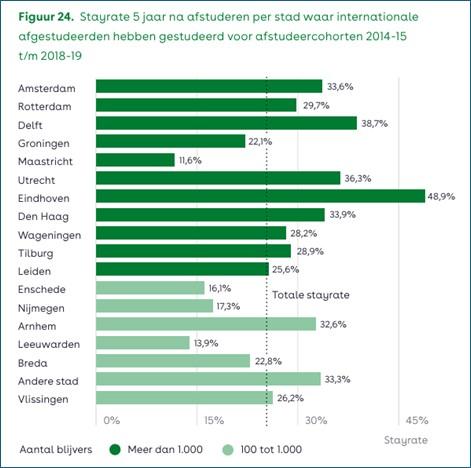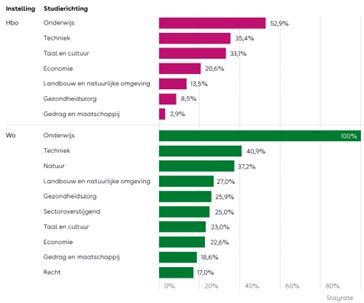Utrecht alumni relatively settled
International students more likely to continue working in the Netherlands

Internationals do not immediately pack their bags after they get their diploma. More than half of them are still in the Netherlands one year after graduation, according to a new report by the internationalisation organisation Nuffic.
This is important data for the political tug-of-war surrounding the internationalisation of higher education: the longer foreign students stay here to work, the more the Dutch economy benefits.
More often
Most international graduates leave, but the number of internationals staying is increasing. Over 30 percent of the 2018/19 cohort were still here five years later (in 2024), and this percentage is likely to be higher for subsequent cohorts.

Source: Nuffic.
This is probably due to labour shortages, but there is something else at play: researchers know more about international graduates now. They are registered in the municipal personal records database more often now, so it is easier to keep track of them. This means the ‘chance of staying’ might have been underestimated in the past.
Whether or not they will stay depends on where they study. About 49 percent of international graduates from Eindhoven are still in the Netherlands five years later, while 39 percent of international Delf graduates are here after half a decade. Both numbers comprise students from research universities and universities of applied sciences. Utrecht also scores high with 36.3 percent.

Source: Nuffic.
The origin of students appears to have a major influence on their chances of staying. Many students from Germany come to the Netherlands to study, but they often leave again. 20 percent of Europeans stay here for more than five years. The percentage is twice as high for non-European students. Surinamese (79 percent) and Iranians (71 percent) are particularly prone to staying here.
The difference between universities of applied sciences and research universities does not appear to be decisive. Research university students are a little more likely to stay, but the difference is only one percentage point.
Teachers tend to stay
The field of study is another important factor. Internationals studying to become teachers usually stay in the Netherlands. Economists often leave the country, but there are so many of them that those who remain still form a large group. Students in technology and natural sciences stay here almost twice as often, but the numbers are still smaller.

Source: Nuffic
Many of them end up living in the Amsterdam region (37 percent) or finding a job near Rotterdam, The Hague, Delft, Utrecht or Eindhoven.